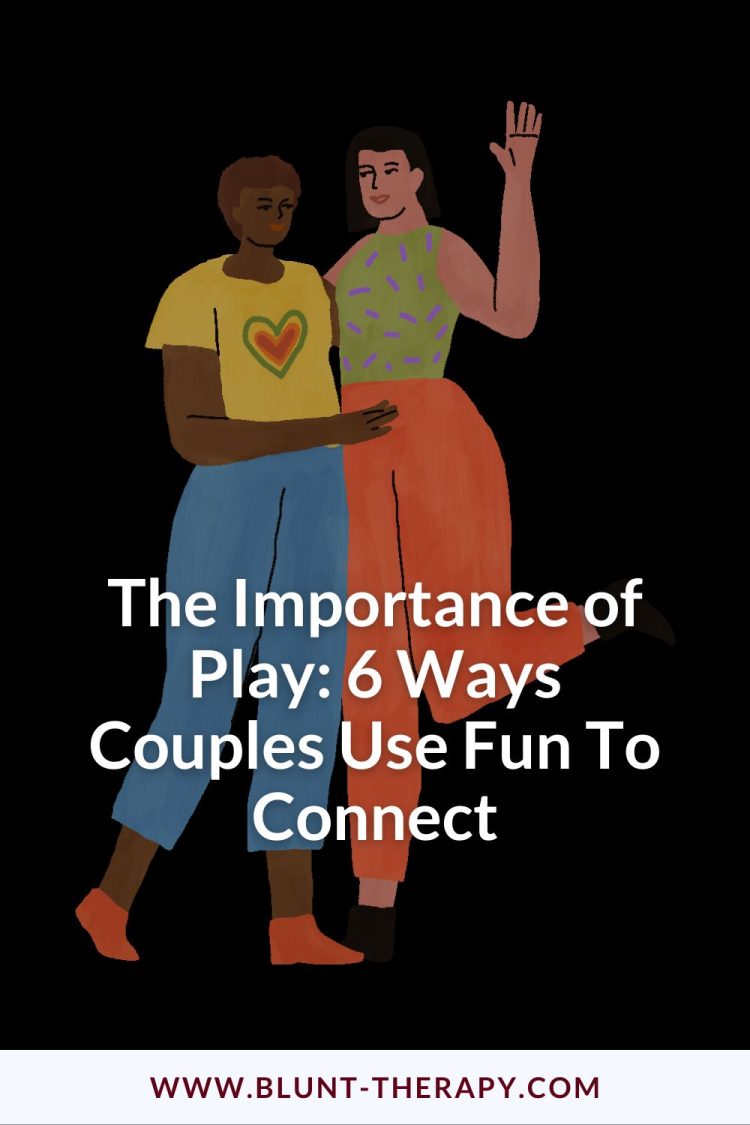Table of Contents
Affiliate link notice: As an affiliate of BetterHelp and other third-party vendors, We will receive compensation if you make a purchase using the links provided on this page. For more information, visit our disclosure page.
Last Updated on September 30, 2025 by Randy Withers
Most couples begin their relationship with laughter, adventure, and lighthearted fun. But as the years go by, work, parenting, and daily responsibilities often push playfulness to the background. Partners may find themselves functioning more like teammates managing tasks than two people deeply enjoying each other’s company.
That’s why understanding the importance of play is essential for lasting connection. Play isn’t just about games or hobbies—it’s about rediscovering joy, building intimacy, and keeping emotional bonds strong. Research shows that couples who prioritize play are more resilient, less stressed, and more satisfied in their relationships. This article explores why play matters and how you can bring more of it back into your relationship.

How Does Playfulness Boost Relationships?
Many are focused heavily on work and family commitments, barely having time for pure fun. Play reminds you that life doesn’t have to be all work and no play. It could be simply sharing jokes, playing board games or building a snowman in the yard. Engaging in joyful activities with your partner offers the following perks for you and your partner:
- Reduces stress: Playtime triggers happy hormones, which can help relieve pain temporarily.
- Improves brain performance: Completing puzzles, playing board games or engaging in mentally challenging activities can help prevent memory issues.
- Enhances creativity: Engaging in creative activities stimulates your mind, helping you become more imaginative.
- Makes you feel young: Play can enhance your energy and disease resistance.
- Heals emotional wounds: Revisiting childhood hobbies and permitting yourself to be silly means embracing your inner child.
- Teaches cooperation: Couples can use play to be more vulnerable, socialize and solve problems together.
Why Is It So Hard to Be Playful?
Life becomes more serious and complicated as you grow up. Work, deadlines, finances and family obligations can drain you of spontaneity. When you’re constantly in provider or caretaker mode, switching to a playful, carefree mindset is challenging. Routines can play a role, too. When every day looks the same, you might stop looking for opportunities to surprise your partner or try something new.
Moreover, playfulness happens where there is emotional trust and safety. When that foundation is shaky, you may not feel comfortable enough to let loose and have fun.
Signs Your Relationship Needs More Play
Recognizing the signs is the first and most important step toward reigniting your relationship. Once you’re aware of what’s missing, you can intentionally work to bring back a playful connection. Keep an eye on these common signs:
- Predictable routines: Every day looks the same. Life feels less like a shared adventure and more like a series of scheduled tasks.
Laughter is less frequent: You rarely share moments of pure, unfiltered laughter. Serious conversations replaced the good-natured teasing that once defined your connection.
You feel like roommates, not partners: You may live together, but you’re both glued to your phones or work. Deep talks feel like ages ago. - Small issues cause big fights: Minor disagreements can escalate when under stress. A lack of lighthearted moments can make the relationship a pressure cooker, where small problems can easily boil over.
- No shared hobbies or interests: You used to love doing things together, but now your interests have diverged. You spend your free time separately, and the passions that once brought you together no longer exist.
6 Ways to Incorporate Play Into Your Relationship
Discover profound ways to boost your relationship through play.
1. Try New Things
New experiences get you excited for what’s next. Doing new things with your partner can help you see each other in a different light. Remember, it’s OK to be a little bad in the first try — that’s part of the fun.
Take a cooking class, dance lesson or a pottery workshop. Become tourists in a town you haven’t visited together before. Choose a cuisine you want to try and make the meal together from scratch.
2. Play Games
Games are a fantastic way to engage in friendly competition and shared goals. They help you relax, laugh and connect without the pressure of serious conversation. Explore these three types of play:
- Physical play: This refers to activities, such as outdoor exercise and hobbies, that encourage movement and engagement. Play in the sand on a beach or go to an adult fitness playground to get your body moving. One benefit of physical play is that it helps you meet your daily exercise requirements.
- Imaginative play: This type of play lets you explore different roles and scenarios in a fun way. Play your favorite characters at a theme party, invent a silly language or create a funny backstory for strangers you see at the park.
- Ritual play: If you love games with set rules and structures, this is a solid choice. Examples include board games, chess and sports.
3. Do Something Creative
Explore creative pursuits if you’re always doing the same things together. Exercising your creativity is good for your mental health, relaxing your mind and bringing a sense of accomplishment.
You don’t need to be an artist to expand your creativity. Sing your heart out at a karaoke bar, dance the night away, learn a musical instrument together, compose a song or make a vision board for your future.
4. Schedule a Playtime
If time is your biggest obstacle, schedule time for play. Putting a “playdate” on the calendar might sound unromantic, but it’s an intentional act that ensures you carve out time for fun, just like you would for a necessary appointment.
Put a weekly playtime on your shared calendar. Agree that you won’t talk about work, bills or chores during this time. Take turns planning each week to keep things exciting.
5. Communicate Openly About Preferences
Everyone’s idea of fun is different. What you may find playful can be stressful for your significant other. Communicate openly and honestly to find activities that bring joy to both of you. You can ask what the most fun thing your partner did last month was. Then, brainstorm a list of activities you both enjoy. Keep it somewhere visible for easy reference.
During discussions, put your phones away to focus on listening and understanding. Avoid dismissing ideas you don’t like. Be willing to compromise, especially if you think the activity will bring you closer together. The goal is to connect, not to engage in a competition.
6. Surprise Each Other
Simple, lighthearted gestures can make someone’s day. Leave a funny note in their bag or surprise them with their favorite snack. For grander gestures, organize a surprise outing, a romantic date night at home or a quick getaway to create lasting memories.
Think about what your partner enjoys and start from there. For instance, if they love playing video games, take time to learn the ropes and invite them to play. These small gestures can warm the heart.
Final Thoughts
Love and commitment are crucial in any relationship, but joy and lightheartedness are what keep it vibrant. Couples who embrace the importance of play don’t just laugh more—they create stronger bonds, improve communication, and build resilience against stress. Play helps partners reconnect with the curiosity and delight that first brought them together, even in the face of life’s inevitable challenges.
If your relationship feels weighed down by routine or stress, start small. Share an inside joke, revisit an old hobby, or try something new together. By intentionally creating moments of play, you nurture intimacy, protect your mental health, and ensure your connection continues to grow. The importance of play isn’t about avoiding responsibility—it’s about choosing joy as an essential part of love.







